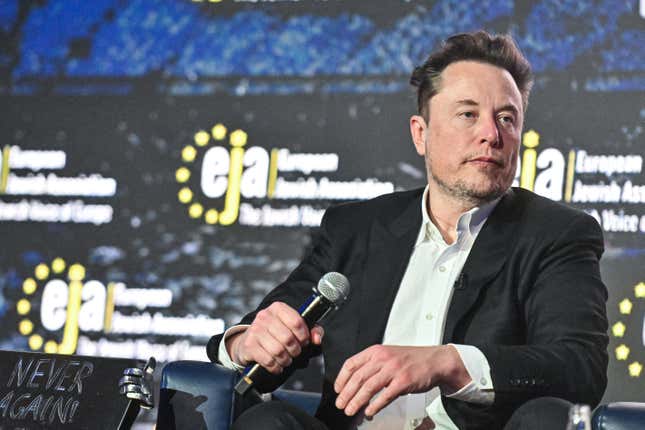
Tesla stock recovered some of its losses following a sharp drop in trading Friday, after CEO Elon Musk denied a report that the electric vehicle maker is scrapping plans for a cheap new car.
Reuters, citing unnamed sources familiar with the matter and internal messages, reports that Tesla has stopped developing the entry-level EV sometimes referred to as the Model 2. It was expected to start at about $25,000, far below Tesla’s cheapest offering on the market, the $39,000 Model 3 sedan.
The EV has been one of Musk’s longest-running promises to investors and consumers. The first mention of such a car was as far back as 2006 in his first “master plan,” which called for using profits from making luxury vehicles to develop a “low cost family car.”
In January, Musk said Tesla planned to start making the model at its factory in Austin, Texas, in the second half of 2025.
But just a month later, some employees were told that plans were being put on ice, Reuters reports. Suppliers have been told to halt all activities related to the project and some engineers have been reassigned to other duties.
Musk on Friday denied Reuter’s report, writing on his social media site X that “Reuters is lying (again)” — referring to past reporting from the outlet that was critical of Tesla.
Tesla stock sank almost as much as 6.2% on Friday but was down about 1.6% in early-afternoon trading. Tesla stock is still down 32% so far this year. The EV maker has been the worst performer in the S&P 500 in 2024, and is no longer one of the top 10 U.S. companies by market capitalization.
Instead of making the Model 2, which was expected to be a vital part of Tesla’s goal of selling 20 million vehicles by 2030, the EV maker will focus on building self-driving robotaxis, Reuters reports.
In April 2019, Musk claimed Teslas equipped with its driver assistance technology were just one year away from no longer needing human supervision, although that has yet to pan out almost five years later. Tesla is also facing several lawsuits related to its Autopilot and Full Self-Driving systems.
Currently, self-driving cars have only been approved by U.S. regulators for limited use on public roads. Google’s Waymo, for example, can only operate in certain cities in California and Arizona.
The reported cancelation came in late February as Tesla was struggling to sell its cars in the U.S. and facing growing competition in China, the world’s largest auto market. Earlier this week, the company reported an 8.5% drop in first quarter sales compared to a year earlier, while its chief rival BYD reported a 13% year-over-year increase. BYD sells electric cars for as low as $10,000 in China and has been aggressively expanding overseas.